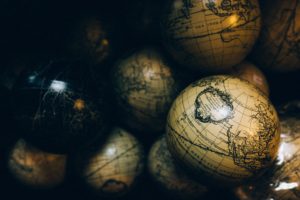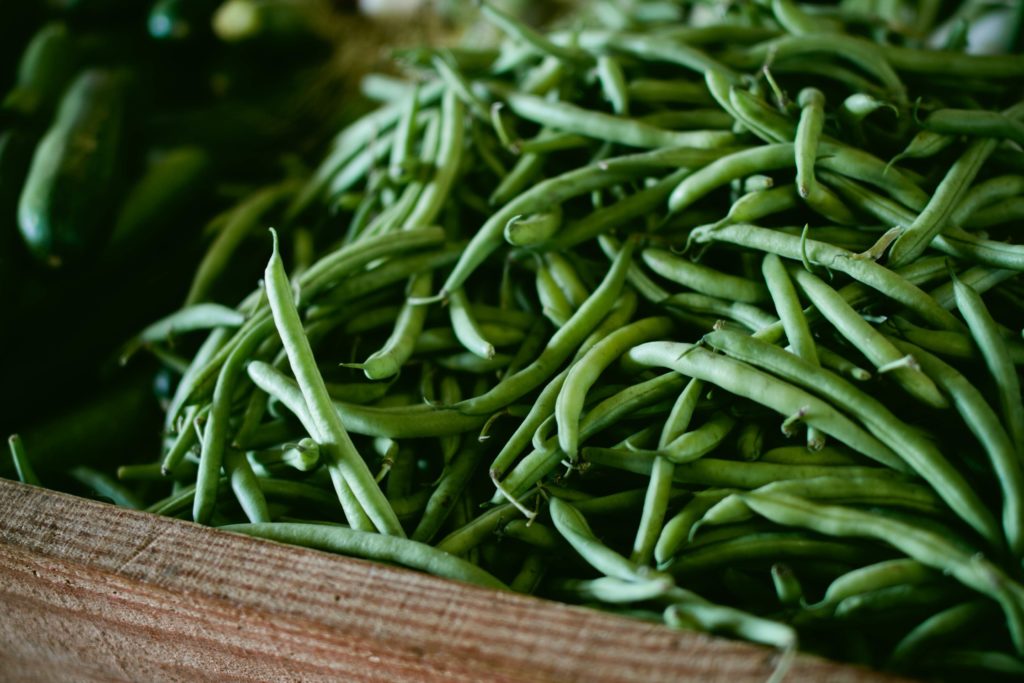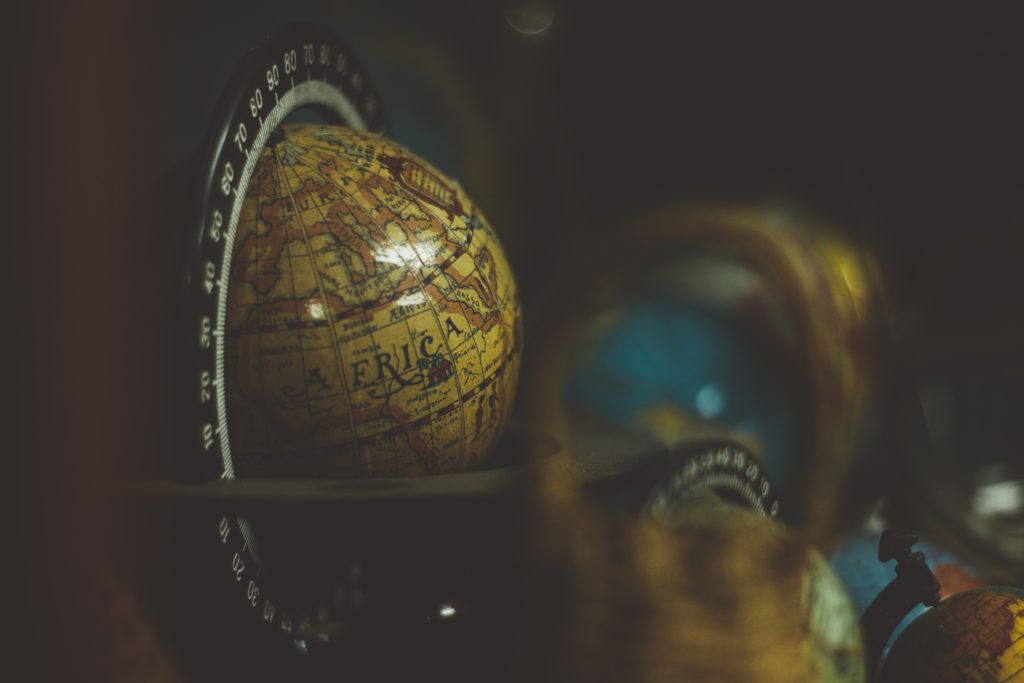Once upon a time, there was a girl who didn’t know what kind of cake she liked. It was her birthday and a friend wanted to make her a cake and asked what her favorite was. The girl had never thought about it. She didn’t think her preferences mattered. She didn’t know how to voice her wants, needs or desires. When she ordered a hamburger from a made-to-order station at her college, she picked the “plain Jane,” because she was too afraid that her choices would be criticized. It didn’t make sense in the cake scenario because these were dear, kind, loving friends. Still, she panicked and said, “White. White cake with white frosting.” (And maybe a side of vanilla ice cream?)
It’s not that white cake with white frosting is bad. It was a delicious cake; it’s just that it wasn’t truly her favorite. It was what she thought would be easy or right. It was a safe choice because it couldn’t be criticized, right? This same girl would order the same thing from the menu at any restaurant she’d ever been to because it required no risk, no choice.
Today, that same girl is celebrating a birthday. (Spoiler alert: It’s me!) And we’re having a meal at church tonight where the theme is “your favorite food.” We’re taking cake. At the time of writing this, I haven’t decided what kind because there are SO MANY to choose from. Now, if you asked me my favorite, I’d say, “Boston Creme Pie,” which doesn’t sound like cake, exactly, or “ice cream cake,” also not technically a cake. Or we might run to Costco and get a cake to take with us because they’re delish and huge. (Also, chocolate cake, yum.)
Now, that girl has trouble choosing a favorite, not because she’s afraid of making a wrong decision or facing criticism, but because she has tried a variety of things she likes.
It is only one evidence of an ongoing change in her life.
—
A few weeks ago, Phil and I were at a local market. It was part date, part grocery errand, as most of our visits to the market are. My husband happens to have Tuesdays off, when the best markets are open, so we take advantage, especially now as fresh vegetables begin to make their abundant return.
Our plan was to find some food for lunch before we shopped for produce. Lines were long at many of the stands selling pork and beef sandwiches. I was waiting for him to return from the bathroom, so I wandered down a path just to see what was there.
“Falafel and shawarma,” a sign read, and my interest immediately peaked. There was a shorter line at this stand, and the prices were reasonable. I turned to find my husband and he was coming toward me. We were agreed that this would be our lunch, and it wasn’t a mistake.
There was a time (see the previous hamburger incident) when I would have wanted to blend in with the crowd and eat something “normal” like beef brisket or a pork sandwich. That day, I was proud, probably in a sinful way, of how far I’ve come. I was more at ease, happier even, eating Middle Eastern food at a rural market in Pennsylvania than I would have been eating the more local fare.
I don’t know how a Midwestern girl from a smallish town learned to love the world. My husband and I both come from families who don’t move too far from where they grew up, and here we are 800 miles from home with our hearts set on the globe. I remember, even as a child, seeing airplanes in the sky over our house (Chicago was only 100 miles away) and wondering where the people were going to or coming from. As a train whistled past, just beyond the hill, I thought about its journey and what it would be like to travel that way.
It’s not that I don’t like my hometown; it’s just that something inside of me always knew, I think, that I would leave. My heart beat “away, away, go, go,” before I even really recognized it. This must be something that was birthed in me because it doesn’t always make sense. I’m not always adventurous, but I have always been curious, and curiosity is what propels me toward adventures like Africa.
I was not meant to see only one piece of the world.
—
Maybe I was not meant to see only one piece of the world, and maybe you were. That’s okay.
Part of what makes life interesting is seeing how different we all are and finding common ground anyway.
Months ago, now, I read a beautiful book that changed the way I think about myself. “Bandersnatch” is not a word I was familiar with, but author Erika Morrison built a whole book around it, turning it into a verb. 
I’m inviting you to bandersnatch, that is, to acknowledge and embrace the unconventional habits and attitudes that are your birthright, to grapple with what has dominion over you, and to become a bit of a nuisance to the unhelpful, unhealthy, and often harmful systems of the human-made kingdom. (iv)
We do that, she says, by asking these questions:
What part of God do you represent? Do you know where you begin and where you end? … Do I know the words that describe who I am? (v)
Who are you, stripped of those things that tell you who you are? (ix)
I don’t want to quote the whole book because that would be plagiarism, so go read it for yourself. But these questions, and the gentle guidance of this book have got me thinking about who I am. Who I really am, not who people tell me I should be or who I think I should be. There is a difference, and it is huge.
—
I used to think that someday I’d become the person I wanted to be, or was meant to be, if I achieved enough milestones or worked through enough issues. There was some outward standard that would signal I had made it. I figured I would “arrive” somewhere in my 30s, or maybe even my 40s. At some point in adulthood I would feel like I had it together.
I’m 38 today. I don’t feel any of that.
But I do feel more like myself than I can ever remember.
Aging has a way of stripping away the things that don’t matter, although that alone isn’t the answer. I’ve met women much older than I am now who are no closer to knowing who they are than on the day they were born.
So, I’ve decided something. (Remember last year when I decided to try to lose 37 pounds for my 37th year? Spoiler alert: Not even close. Yeah, this is not like that at all.)
I’ve decided that I can’t wait to become the person I’m meant to be. Not “I can’t wait” in the “I’m so excited for that to happen someday in the future” sense. No, the “I can’t wait” as in “I don’t have to wait” sense.
I can’t wait and I won’t wait to become that woman because I already am her. And I’m not. But I can’t put it off. I can’t wait until life lines up like I think it should, just like I can’t delay buying new clothes until I lose X number of pounds. If I wait until I meet a certain standard, it might never happen. So, I’ll buy the clothes that fit me now. I’ll express myself according to my preferences, choices and beliefs now. Sure, they might change, but I can’t wait until I’m older to have an opinion about something. Besides, preferences, choices and beliefs often change. That girl who was afraid to express herself years ago wouldn’t recognize the woman she is now, and that’s kind of a good thing.
There are some things inside of me that will never change because they are part of the inherent me. And some of those things have been silenced by fear or shame or the “shoulds” from others.
Another question from Morrison begs for answers:
What percentage of you is original like you were born to be, and what percentage of you is owned by society’s systems and institutions and formulas for fun and happiness and rules for right living that don’t allow for the sacrament of your own strangeness?
Honestly? I never wanted to be weird. I was the girl who wanted to blend in, fade from memory, go unnoticed. I don’t think I really wanted that, but I think it’s what I thought I deserved. I didn’t think I was special or remarkable in any way. I thought I was so forgettable that after high school, I re-introduced myself to classmates I’d been in school with for years. I didn’t think they would remember me, even though our class was small.
Weird wasn’t cool, or so thought, but do you want to know a secret? We’re all a bit strange, if only we’d embrace it. I love how Morrison calls it a sacrament of strangeness.
I’m a holy weirdo.
That’s what this birthday is about for me–embracing my strange, unique, incomparable self; celebrating the woman I am and the woman I am becoming.
My original title for this post was going to be something about 38 not being great, but I think I’ve changed my mind. Maybe this year won’t be the best ever or one of ridiculous transformation, but I don’t think that matters so much anymore.
What matters is how genuinely I’m living out my unique, God-made self.
I’ll let you know how it goes.



